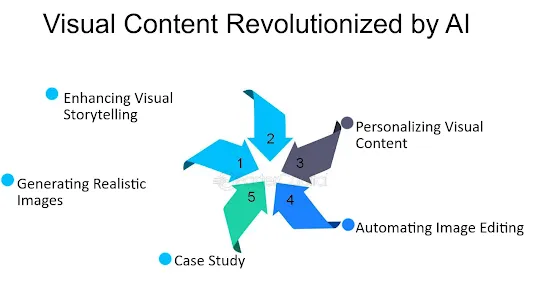Introduction
Artificial Intelligence (AI) has rapidly evolved from a futuristic concept to a present-day reality, permeating various industries with its capabilities. Among its most significant impacts is in the realm of content creation, where AI is revolutionizing how businesses and individuals produce, distribute, and consume content. From writing articles to generating artwork, AI is transforming creativity in ways that were once unimaginable.
AI in Writing and Content Generation
AI-powered tools like ChatGPT, Jasper, and Copy.ai are becoming increasingly popular among content creators, marketers, and businesses. These tools can generate blog posts, social media content, product descriptions, and more within minutes. They analyze vast amounts of data, understand the context, and produce human-like text that can engage and inform readers.
The use of AI in writing not only saves time but also helps in overcoming writer’s block and generating ideas. For businesses, AI can maintain consistency in tone and style across all content, ensuring a unified brand voice. However, while AI can produce coherent and contextually relevant content, the human touch remains crucial, especially in areas requiring deep emotional connection or creative nuance.
 |
| 360 Blogs |
AI in Visual Content Creation
Beyond text, AI is also making waves in visual content creation. AI-driven design tools like DALL-E and Midjourney can create stunning images, logos, and even complete artworks based on textual descriptions. This democratizes the design process, allowing individuals and businesses without graphic design expertise to create professional-grade visuals.
For marketers, AI can generate custom visuals tailored to specific audiences, enhancing the effectiveness of advertising campaigns. In the fashion industry, AI is used to design clothing lines and predict trends, while in the film industry, AI assists in visual effects and animation.
 |
| 360 Blogs |
Ethical Considerations and Challenges
Despite its benefits, the rise of AI in content creation brings about significant ethical considerations. One major concern is the potential for AI-generated content to spread misinformation. Since AI tools can generate content that appears credible, distinguishing between fact and fiction becomes challenging, leading to potential misuse.
Another issue is the impact on jobs. As AI takes over more tasks traditionally performed by humans, there are concerns about job displacement in creative fields. While AI can assist in content creation, it also raises questions about the future of human creativity and whether machines can truly replicate the creative process.
Moreover, there is the matter of intellectual property. As AI generates content, determining who owns the rights to that content—whether the user, the AI developer, or someone else—remains a gray area that legal frameworks are still grappling with.
 |
| 360 Blogs |
The Future of AI in Content Creation
Looking ahead, AI is expected to become even more integrated into content creation processes. As technology advances, AI will likely be able to produce content that is indistinguishable from human-generated work. This will open up new opportunities for innovation but will also require robust frameworks to address the ethical and legal challenges.
Businesses that embrace AI in their content strategies will gain a competitive edge by enhancing productivity and creativity. However, they must also remain vigilant about the ethical implications and ensure that AI is used responsibly.
Conclusion
AI is undeniably transforming the landscape of content creation, offering unprecedented opportunities for innovation and efficiency. While the potential of AI is vast, it is essential to approach its integration thoughtfully, considering the ethical, legal, and creative impacts. As AI continues to evolve, it will be crucial for both creators and consumers to adapt to this new paradigm while preserving the essence of human creativity.



0 Comments